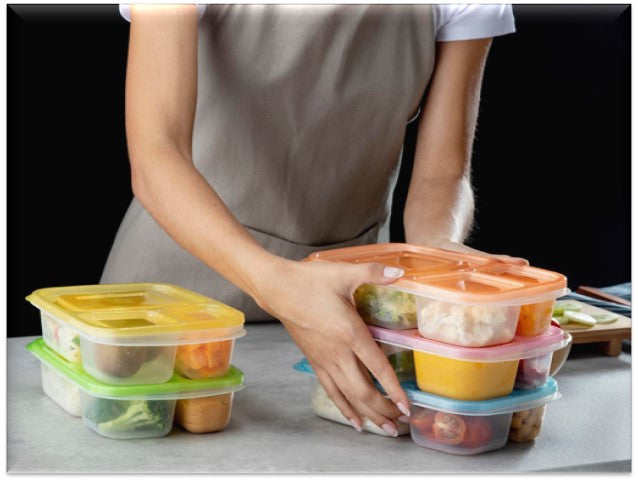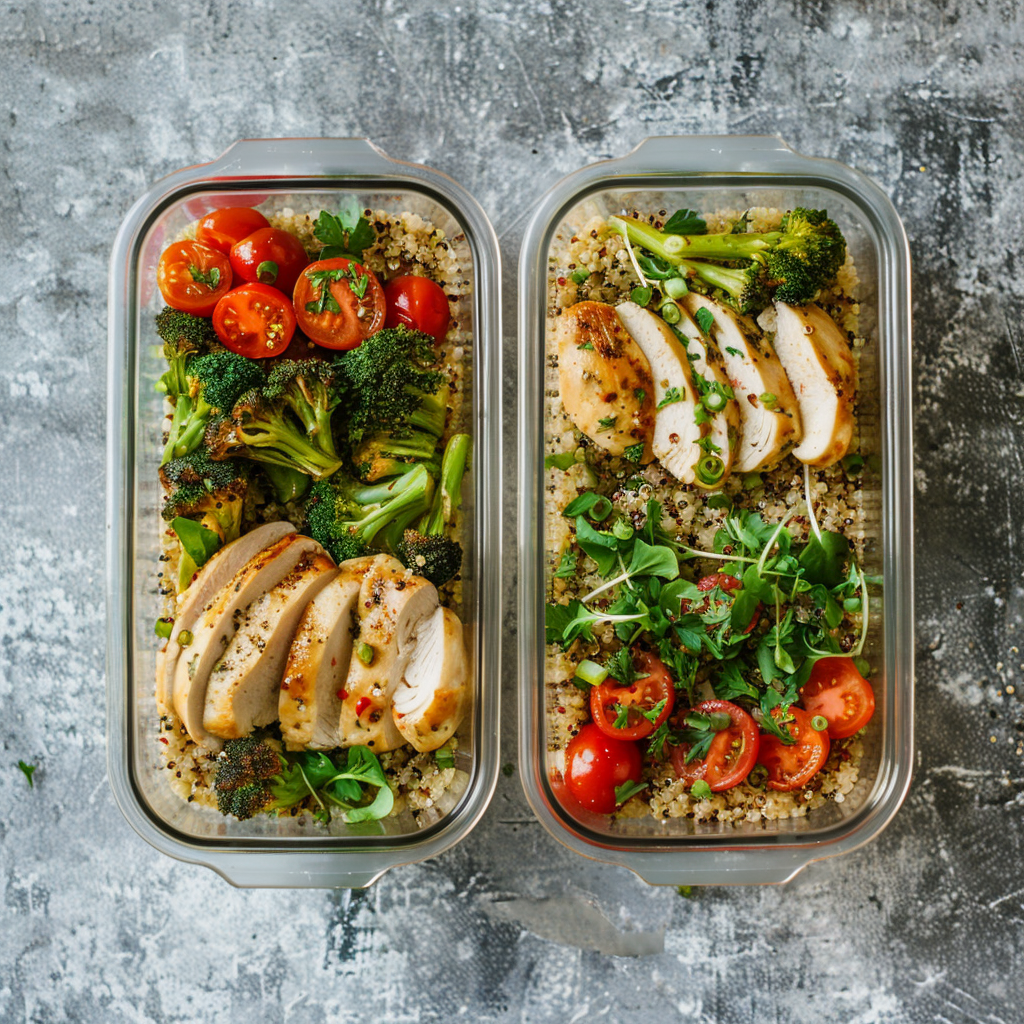Meal prepping isn't just about cooking. It is a lifestyle choice that champions efficiency, health, and simplicity. But where do you start? Whether you're a seasoned meal prep pro looking for new tricks or a beginner eager to simplify your eating habits, these 15 best practices will transform your approach to meal prepping.
1. Start Small
If you're new to meal prep, begin with just a couple of meals or snacks for the week. Overwhelming yourself with too much too soon can lead to burnout.
2. Invest in Quality Containers

Good containers are the cornerstone of successful meal prep. Look for durable, microwave-safe, and leak-proof options that will keep your food fresh.
3. Plan Your Menu
Take some time to decide what you want to eat during the week and write it down in your meal planning notebook so that you have an overview of the weekly meals. A well-thought-out menu helps prevent food waste and ensures balance and variety.
4. Shop Smart
Create a shopping list based on your menu plan. Stick to the list to save time, reduce waste, and avoid impulse buys.
5. Keep It Balanced
Focus on creating balanced meals with a good mix of proteins, carbohydrates, and vegetables. This ensures you get a variety of nutrients throughout the week.
6. Prep Ingredients in Bulk
Cook grains, chop vegetables, or marinate proteins in bulk. It’s more efficient and saves time during the week. If you pack lunch for work, this meal prep technique is perfect for constructing your lunch boxes for week days.
7. Embrace Versatility
Choose ingredients that can be used in multiple recipes. A batch of quinoa, for example, can be used in salads, bowls, or as a side.
8. Season Smartly
Use a variety of spices and herbs to keep your meals interesting and flavorful. Seasoning can transform the same ingredients into completely different dishes.
9. Label Everything
Date and label your containers. Knowing what you have and how long it’s been in the fridge or freezer avoids waste and ensures you enjoy your meals at their best.
10. Use the Freezer
Not all meals need to be eaten within days. Freeze portions for later in the week to keep them fresh and extend their shelf life. As far as freezing is concerned, not all foods were made equal. Make sure you freeze foods that keep well over time.
11. Schedule a Plan & Prep Day
Dedicate a few hours one day a week to making your weekly meal plan and meal prep. Make it enjoyable by listening to music or a podcast as you cook.
12. Stay Flexible
Life happens. Sometimes you won’t feel like eating what you’ve prepped, and that’s okay. Allow for flexibility in your meal plan.
13. Include Snacks
Prep healthy snacks to avoid the temptation of reaching for something less nutritious. Fruit, nuts, and yogurt are great options.
14. Hydrate Creatively
Prepare infused waters or iced teas for the week. Staying hydrated is important, and having flavorful options makes it more enjoyable.
15. Reflect and Adjust
Take some time to reflect on what worked and what didn’t. Adjust your process based on your experiences to make meal prepping work better for you.
--
Meal prep is more than just a way to save time and eat healthily; it's a commitment to caring for yourself and making your wellbeing a priority. With these 15 best practices, you'll be well on your way to mastering the art of meal prepping, making each week smoother, tastier, and a little bit easier. So, grab your meal planner, fire up your creativity, and start prepping your way to healthier, more organized meals.


